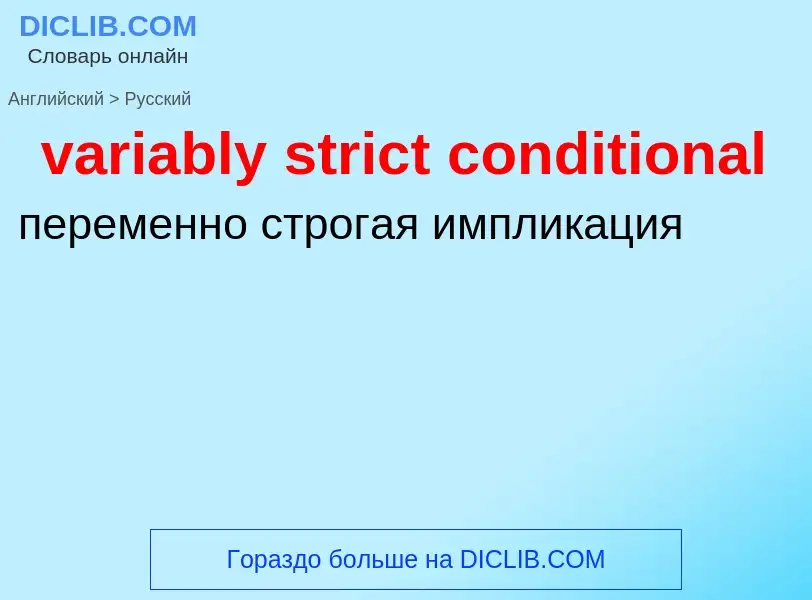Traducción y análisis de palabras por inteligencia artificial ChatGPT
En esta página puede obtener un análisis detallado de una palabra o frase, producido utilizando la mejor tecnología de inteligencia artificial hasta la fecha:
- cómo se usa la palabra
- frecuencia de uso
- se utiliza con más frecuencia en el habla oral o escrita
- opciones de traducción
- ejemplos de uso (varias frases con traducción)
- etimología
variably strict conditional - traducción al ruso
логика
переменно строгая импликация
логика
условное высказывание
противоречащее факту
Definición
Wikipedia
Counterfactual conditionals (also subjunctive or X-marked) are conditional sentences which discuss what would have been true under different circumstances, e.g. "If Peter believed in ghosts, he would be afraid to be here." Counterfactuals are contrasted with indicatives, which are generally restricted to discussing open possibilities. Counterfactuals are characterized grammatically by their use of fake tense morphology, which some languages use in combination with other kinds of morphology including aspect and mood.
Counterfactuals are one of the most studied phenomena in philosophical logic, formal semantics, and philosophy of language. They were first discussed as a problem for the material conditional analysis of conditionals, which treats them all as trivially true. Starting in the 1960s, philosophers and linguists developed the now-classic possible world approach, in which a counterfactual's truth hinges on its consequent holding at certain possible worlds where its antecedent holds. More recent formal analyses have treated them using tools such as causal models and dynamic semantics. Other research has addressed their metaphysical, psychological, and grammatical underpinnings, while applying some of the resultant insights to fields including history, marketing, and epidemiology.

